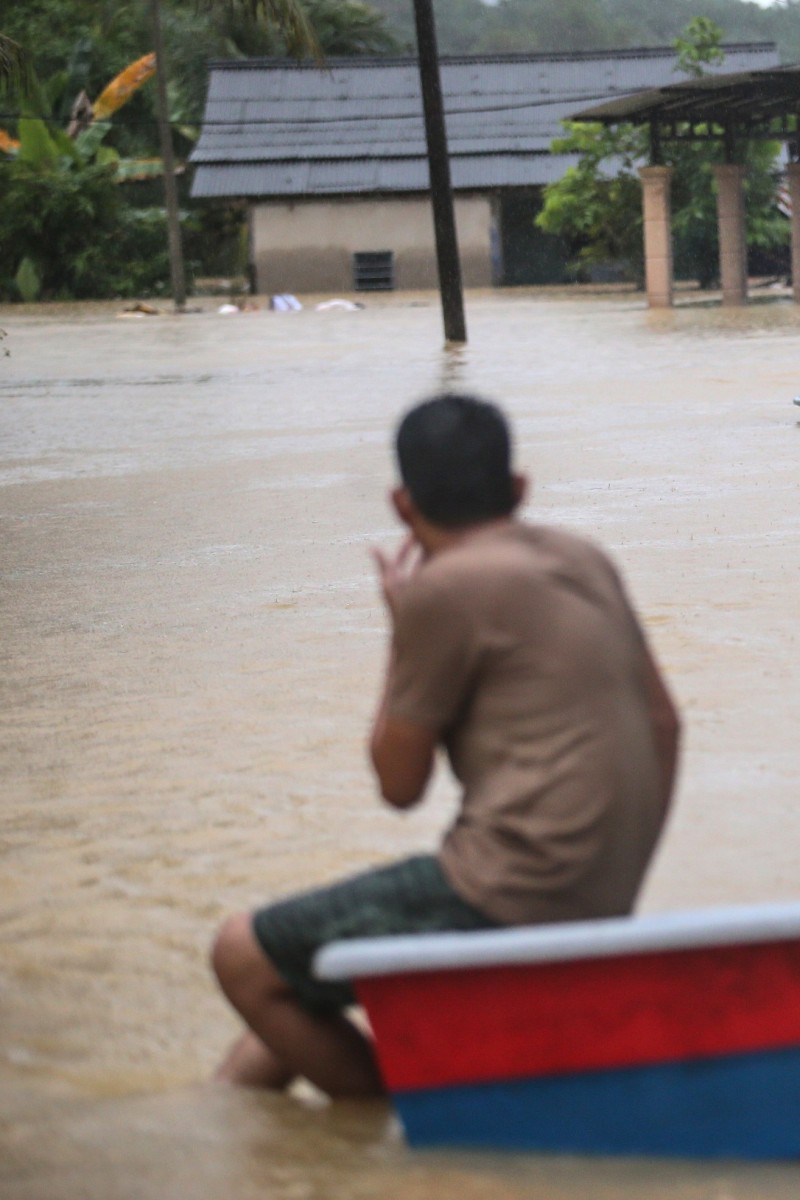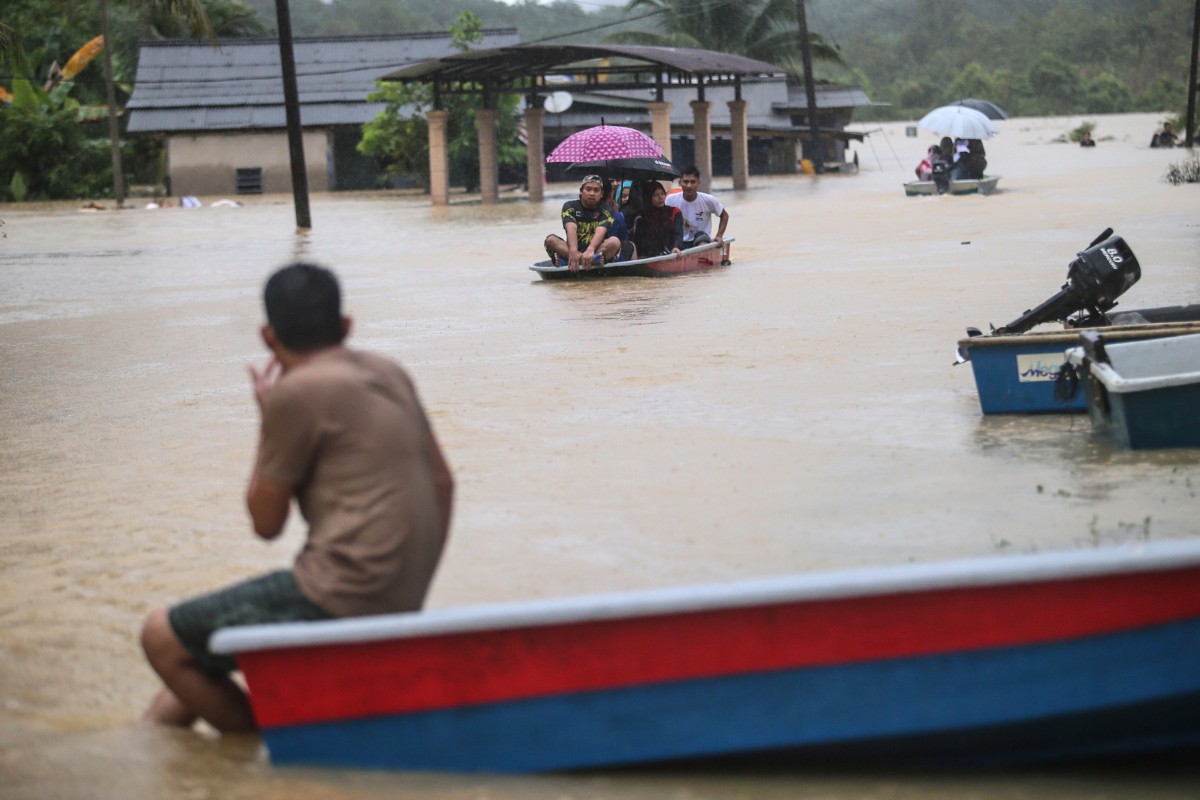
Study Buddy (Challenger): As Southeast Asia faces rising sea levels, Asean should push climate policies as a bloc
- These nations should work together to push wealthy countries to help fund the transition out of high-carbon infrastructure and build on environmental sustainability
- This page is for students who want to take their understanding to the next level with difficult vocabulary and questions to test their inference skills
 Many countries in Southeast Asia are already experiencing the disastrous effects of climate change. Photo: EPA-EFE
Many countries in Southeast Asia are already experiencing the disastrous effects of climate change. Photo: EPA-EFEContent provided by British Council
Read the following text, and answer questions 1-9 below:
[1] A Thai news report in February highlighted the existential threat facing Bangkok, with experts warning of the climate danger in the capital city’s most urban areas. According to the Bangkok Post report headlined “Bangkok is still sinking, and fast!”, the shoreline of the Bangkok Metropolitan Region – home to some 14 million people – would recede by 1.3km every year, and eventually fall below sea level within a century, if nothing was done to address the situation.
[2] Bangkok is not the only Southeast Asian city facing a climate crisis. Four years ago, Indonesia’s capital of Jakarta earned the distinction of being one of the world’s fastest sinking cities, with half the city already sitting below sea level, exposing large sections of its 10 million population to persistent and potentially life-threatening floods. To deal with this, Indonesia’s President Joko Widodo launched an ambitious plan to move the capital city to a new island far removed from the collapsing soil and chronic pollution that has long plagued the northwestern coast of Java where Jakarta was built.
[3] But not every country has the space, or desire, to engage in what would be an exorbitant exercise to move the seat of government, along with entire communities. Singapore, limited to an island off the tip of Malaysia’s peninsula, can only build upwards. The increasingly frequent flash floods in Malaysia’s capital of Kuala Lumpur have more to do with haphazard development and neglect of proper drainage over the years, albeit triggered by adverse weather.
[4] Besides Laos and Cambodia, members of the Association of Southeast Asian Nations, or Asean, have significant stretches of coastline. Clustered around the South China Sea, where an estimated US$5 trillion (HK$39.2 trillion) in maritime trade travels through annually, it is not surprising that many key cities in the region grew out of strategic ports. But any rise in sea levels would have a catastrophic effect on these cities, their residents and the economies of their nations. Should everyone just move further inland?
[5] The common thread for nations in Southeast Asia is that climate change is a threat to their national security, people and economies. Most governments in the region have either legislated or agreed to adopt measures aimed at managing greenhouse emissions or mitigating the effects of climate change. But many of these nations are developing economies that remain reliant on exploiting their natural resources to keep growth chugging along.
[6] Quitting polluting industries like coal-powered energy production may be too expensive a decision for some to bear. This makes it all the more important for developing nations to group together and press harder on the developed world to live up to their decades-old promises of helping fund the transition out of high-carbon infrastructure and build on environmental sustainability.
[7] Asean had in 2021 called on developed nations to scale up mobilisation of climate finance for the developing world, but the statement read more like a wish list. Rather than have each Asean member go at it alone at major conferences, perhaps it is time for the regional bloc to evolve into a body that pushes global policy with the combined heft of its 10 member states.
Source: South China Morning Post, February 10
Questions
1. What does the “existential threat” in paragraph 1 refer to?
2. According to paragraph 2, what could those residing in Jakarta be exposed to if the situation is not addressed?
3. In paragraph 3, why is Singapore unlikely to relocate its population in response to the effects of climate change?
4. Most of the cities mentioned in paragraph 4 ...
A. are somewhat connected to the South China Sea.
B. depend heavily on maritime trading.
C. are contemplating moving their capital cities.
D. have trading ports that are no longer in use.
5. Find a word in paragraph 5 that means “making something bad less severe”.
6. Why is it especially challenging for many Southeast Asian governments to completely eliminate their reliance on fossil fuels?
7. Find a phrase in paragraph 7 that means to “act by oneself without assistance”.
8. Which of these statements is the writer most likely to agree with?
A. While Joko Widodo’s plan to move Indonesia’s capital city is ambitious, it could be the answer to addressing the consequences of global warming in Southeast Asia.
B. Developing countries will continue contributing to global warming because they cannot afford sustainable alternatives, and there is nothing that can be done about this.
C. Wealthy nations have a responsibility to help developing countries in the fight against climate change.
D. all of the above
9. What is the main message of the article?
A. Not every Southeast Asian nation can afford to move their cities – along with entire communities – to new frontiers.
B. The common thread for Asean nations is that climate change is a threat to their national security, people and economies.
C. All Southeast Asian countries with receding shorelines should move their coastal cities inland.
D. Instead of focusing on individual efforts, Asean members should act together as one body to push for financial support from wealthier countries to tackle climate change.
Answers
1. Bangkok is sinking / Bangkok’s receding shoreline
2. persistent and potentially life-threatening floods
3. Singapore is limited to an island off the tip of Malaysia’s peninsula and cannot build anywhere else but upwards.
4. A
5. mitigating
6. Many of these nations are developing economies that remain reliant on exploiting their natural resources to sustain economic growth.
7. go at it alone
8. C
9. D
